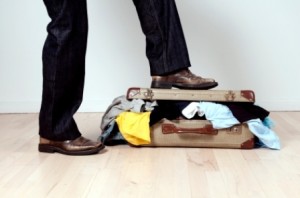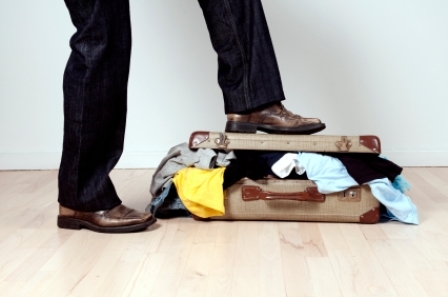 The lure of an overseas gig can be enticing. When you finally land one, it’s exciting. American musicians who have toured Europe and Japan report playing to attentive crowds in venues that know how to treat the band. Sometimes, meals and accommodations are included. Some acts make annual tours overseas and say it’s worth it even if they only break even, due to the positive experience and the devotion of the new fans they make. Americana folk, rock and punk acts seem to fare especially well in the overseas environment. Get hooked up with the right support network of venues, promoters and fans in the countries you want to visit and not only will you have a great time, you may even make a profit.
The lure of an overseas gig can be enticing. When you finally land one, it’s exciting. American musicians who have toured Europe and Japan report playing to attentive crowds in venues that know how to treat the band. Sometimes, meals and accommodations are included. Some acts make annual tours overseas and say it’s worth it even if they only break even, due to the positive experience and the devotion of the new fans they make. Americana folk, rock and punk acts seem to fare especially well in the overseas environment. Get hooked up with the right support network of venues, promoters and fans in the countries you want to visit and not only will you have a great time, you may even make a profit.
Most DIY, indie acts that do well overseas usually have one thing in common: they’ve done their homework about traveling abroad as a musical act. You need to find out about visas and work permits, check for any needed immunizations, travel alerts, advisories, ground transportation, etc. Some places are easier than others, but nothing could be worse than being turned away by customs officials or hounded by local authorities.
First and foremost: when booking the gig, and even after the gig is booked, you need to stay in contact with the venue to make sure the gig is still on. Get all the details, like payment and work requirements, in order. If it’s a reputable venue, they’re used to dealing with overseas acts and can provide all the pertinent info for playing in their country.
Always check with the U.S. State Department, for everything concerning travel to a certain country. A good place to start is state department’s travel website, www.travel.state.gov. Here you’ll find country-by-country info for traveling abroad, along with the necessary documents required for visiting and working there.
You’ll need to get there with your instruments, which means flying. If you have an instrument that is precious to you, you’ll want to carry it on the plane and never let it out of your sight. If the instrument meets the size requirements for carry-on luggage, don’t check it. If it’s too large to carry on, consider buying your instrument its own ticket so it has a seat on the plane next to you — it’s done often. This option may be pricey, but, if it’s precious treat it so, which means it never touches a baggage handlers hands or sees the underbelly of an airplane.
Now don’t stress out about your first overseas gig, just follow these tips and have fun. You’ll make new friends, get exposed to a new culture and hopefully gain some new fans. It’s really a great experience if you’re properly prepared!












































I wish it were easier to find overseas contacts, my brother went to Italy in 2008. But in 2010 the promoter acted like a nut, and he lost the backing of the sponser. You can check out his work, Zion Antoni…If you know of any up coming overseas venues please contact us…thanks